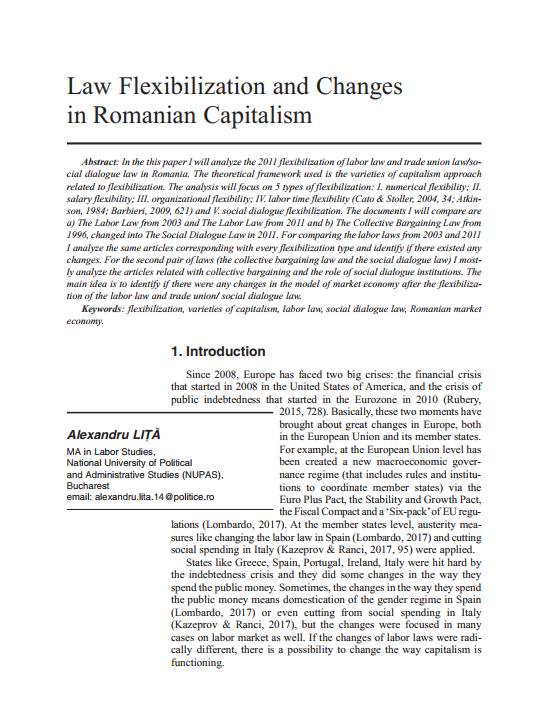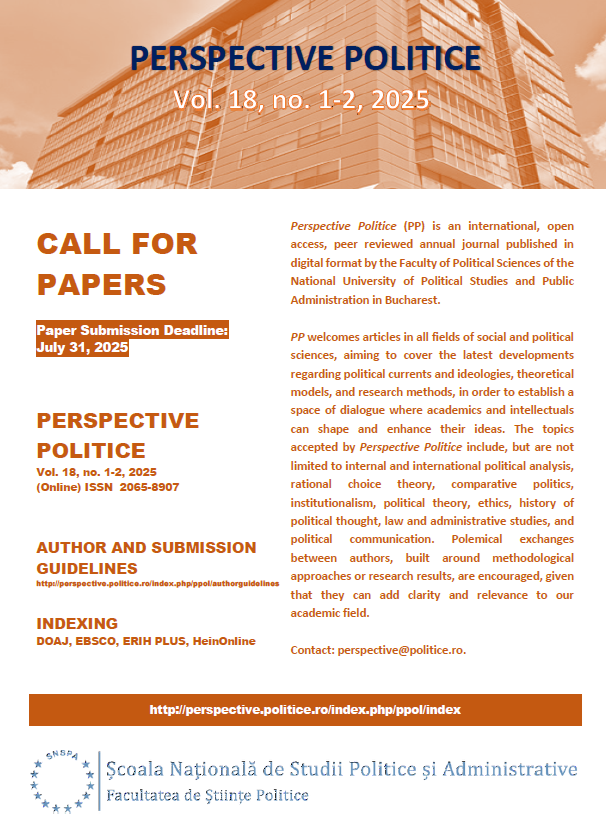Law Flexibilization and Changes in Romanian Capitalism
Abstract
In the this paper I will analyze the 2011 flexibilization of labor law and trade union law/social dialogue law in Romania. The theoretical framework used is the varieties of capitalism approach related to flexibilization. The analysis will focus on 5 types of flexibilization: I. numerical flexibility; II. salary flexibility; III. organizational flexibility; IV. labor time flexibility (Cato & Stoller, 2004, 34; Atkinson, 1984; Barbieri, 2009, 621) and V. social dialogue flexibilization. The documents I will compare are a) The Labor Law from 2003 and The Labor Law from 2011 and b) The Collective Bargaining Law from 1996, changed into The Social Dialogue Law in 2011. For comparing the labor laws from 2003 and 2011 I analyze the same articles corresponding with every flexibilization type and identify if there existed any changes. For the second pair of laws (the collective bargaining law and the social dialogue law) I mostly analyze the articles related with collective bargaining and the role of social dialogue institutions. The main idea is to identify if there were any changes in the model of market economy after the flexibilization of the labor law and trade union/ social dialogue law.




